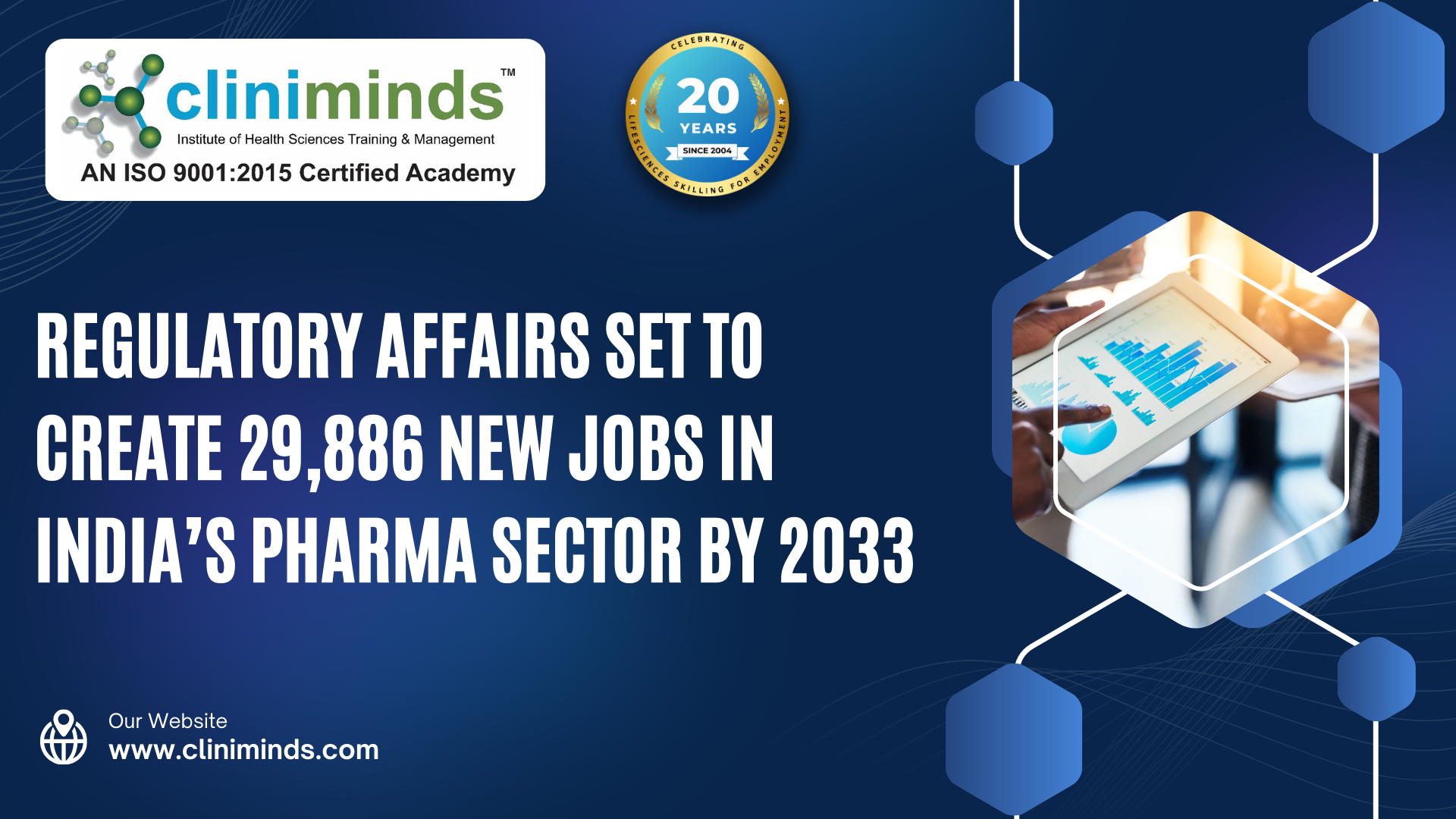Regulatory affairs set to create 29,886 new jobs in india’s pharma sector by 2033

Significant Growth of Regulatory Affairs Sector in Indian Pharmaceutical Industry
The Indian pharmaceutical industry has emerged as a global powerhouse, recognized for its cost-effective manufacturing, strong R&D capabilities, and extensive export footprint. A key enabler behind this remarkable journey has been the evolving Regulatory Affairs (RA) sector, which has grown significantly in both scope and importance over the past decade.
Industry Growth Fuels Regulatory Demand
India is the third-largest producer of pharmaceuticals by volume and the 14th largest by value. The sector, valued at approximately $65 billion in 2024, is projected to cross $120–130 billion by 2030, with aspirations to reach $400–450 billion by 2047. This growth trajectory has brought regulatory compliance and global market access into sharp focus, pushing pharmaceutical companies to invest heavily in regulatory expertise.
Based on the various industry reports and a very conservative estimate of 10% annual growth in drug regulatory affairs jobs, here’s a projected year-wise breakdown of entry level job creation in India’s pharmaceutical and medical device regulatory affairs over the next 9 years:
| Year | Estimated Number of Entry Level Fresher Jobs |
|---|---|
| 2025 | 2,200 |
| 2026 | 2,420 |
| 2027 | 2,662 |
| 2028 | 2,928 |
| 2029 | 3,220 |
| 2030 | 3,542 |
| 2031 | 3,896 |
| 2032 | 4,285 |
| 2033 | 4,713 |
| Total over 9 years | 29,886 |
This estimate assumes a 10% year-over-year growth rate, which reflects a conservative outlook on the expansion of regulatory affairs roles in response to market and regulatory changes in India’s pharmaceutical and medical device sectors.
What Drives the Surge in Regulatory Affairs?
The increasing complexity of regulatory frameworks across global markets—especially in the United States (FDA), European Union (EMA), Japan (PMDA), and other regions—has made it imperative for Indian pharma firms to build robust regulatory systems. Several factors have contributed to this shift:
- Global Expansion: Indian companies are increasingly targeting highly regulated markets. Navigating these markets requires detailed documentation, regulatory strategy, and timely submissions—all managed by RA professionals.
- Product Lifecycle Management: From clinical trials and marketing authorizations to post-marketing surveillance and product renewals, regulatory teams are now involved in every stage of a product's life.
- Government Reforms: Indian regulatory bodies such as the Central Drugs Standard Control Organization (CDSCO) have implemented digital systems, accelerated approval processes, and updated regulatory frameworks to improve transparency and efficiency.
Job Market Outlook
The RA sector in India has witnessed a 10–15% annual growth rate in job demand, according to recent industry insights. With companies expanding their regulatory teams, opportunities for skilled professionals—especially those with specialized knowledge in international regulations, eCTD submissions, and pharmacovigilance—are on the rise. Entry-level roles, mid-management positions, and even international liaison officers are now in high demand.
Educational and Professional Upskilling
This boom in RA has also led to a spike in regulatory affairs certification programs, diplomas, and specialized postgraduate degrees. Universities and training institutes are tailoring curricula to industry needs, focusing on documentation, regulatory strategy, drug laws, and ethics.
Challenges to Address
While the growth is encouraging, challenges persist:
- Talent Shortage: There is a gap between industry needs and the availability of trained regulatory professionals.
- Regulatory Updates: Constant changes in global regulations demand continuous learning and adaptation.
- Digital Transformation: Companies are still transitioning from paper-based systems to digital regulatory submission tools.
Conclusion
The regulatory affairs sector is no longer a back-end support function but a strategic pillar in the Indian pharmaceutical industry. Its growth reflects India’s ambition to become a trusted global supplier of high-quality, compliant medicines. As international scrutiny increases and global standards tighten, the value of regulatory professionals will only grow—ensuring that India maintains its competitive edge in the pharma world.



